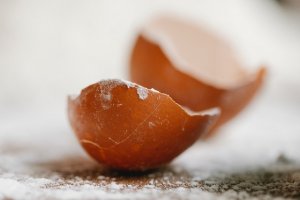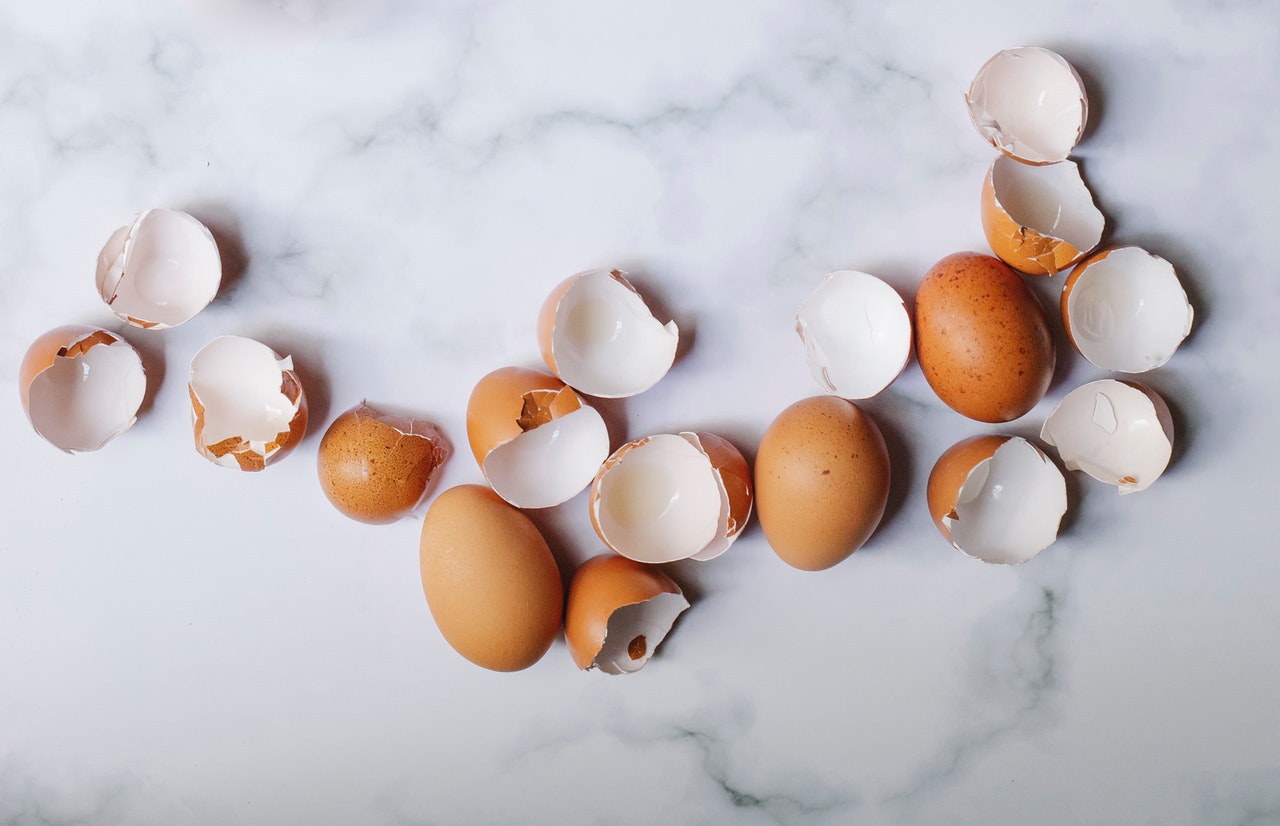Yes, you should add eggshells to your compost. It has various minerals that are vital for plant growth and to the soil. In addition, eggshells are full of calcium and other nutrients that your soil may be lacking. Adding them to the compost enriches it and even helps keep pests away.
Table of Contents
Should You Put Eggshells in Compost?
Eggs are one of the cheap and easy-to-reach protein sources for us humans. You can boil, fry, bake, or use it in other kitchen recipes. Yet often, eggshells that contain numerous benefits to the soil end up in landfills, going to waste and contributing to environmental degradation.
So what else can you do with eggshells if not throw them away?
You can try eggshells compost since eggshells are compostable. The shells have several benefits for plants and the soil, so preserving them is a much better alternative.
Eggshells are rich in potassium, calcium carbonate, and other essential nutrients. The calcium carbonate in the shells will help balance out the acidity of the pile.
If you’re not into having eggshells in your yard, you can mulch them and use them as a natural source of calcium for your indoor plants.
Experts say that eggshells are one of the most nutrient-packed things you can feed your houseplants.
Benefits of Composting Eggshells
There are many benefits of adding eggshells to your compost. Eggshells are full of organic materials and nutrients vital for the garden.
Composting them releases those nutrients and adds them back into your soil. Some of the benefits include:
- The calcium content of eggshells helps plants grow big and strong. They are also vital in preventing blossom end rot, a common problem in tomato plants. Blossom end rot happens when tomatoes aren’t getting enough calcium. To humans, calcium is essential for strong bones and teeth.
- They also contain other minerals beneficial to the soil, such as carbon and a low percentage of copper, phosphorus, magnesium, sodium, manganese, zinc, and iron.
- Eggshells can act as a natural pesticide in the garden soil. When crushed into a powder, the sharp edges of the ground eggshells cut through the outer layer of insects’ exoskeletons and dry out their insides, preventing them from breathing. This makes them unable to move or reproduce. Eggshells have been used this way for centuries and are still an effective alternative method for dealing with slugs and snails today.
- Helps in controlling weeds
- Eggshells are an excellent source of lime, which helps regulate the soil pH levels in the acidic soil to prevent it from becoming too alkaline or acidic.
- Egg shells make great water reservoirs for plants in dry climates. They hold up to 8 times their weight in water!
- Eggshell compost also has the added benefit of being odorless, unlike other forms of composting that may produce foul odors.
- They are more affordable than buying commercial fertilizers
How Long Does it Take For Eggshells to Compost?
Eggshells, when not crushed, take years to decompose. Studies show that it can take more than five years to decompose even when buried in the soil. The secret is in crashing them.
The decomposition process improves and quickens when grounded into fine powder. Ground eggshells can decompose in a month.
How Do You Prepare Eggshells for Compost?

The first thing you need to do is to empty the eggshells of their contents to be composted. You can do this by cracking and peeling the shells or taking a small spoon and scraping them.
Scrape the egg white out of the shell; if there’s any yolk left in it, break it up with your fingers and pick it out. No yolks mean that your compost will decompose faster.
Now you have an empty eggshell—it’s time to clean it. Eggshells are full of tiny microscopic pores that make them ideal for repelling water, which is why they’re so great for keeping moisture inside an egg as it cooks.
They are also prone to salmonella bacteria. You can use vinegar to clean your eggshells without damaging them.
Afterward, leave them dry before grinding them with a coffee grinder, a blender, or a food processor. The machines will grind the shells into fine powder faster than you could do by hand.
Grinding eggshells will quicken the decomposition process, unlike when they are just thrown into the compost pile.
Composting Eggshells in Five Easy Steps
After preparing eggshells for composting, the second process is now the composting process.
Step 1 – Prepare the Compost Bin
Ensure that you have a suitable compost bin. This is essential for the whole process because your materials may never decompose with the wrong type of bin.
Step 2 – Mix All The Compost Heap in the Bin
Put grass clipping or hays on the flow of the bin. Then add all the brown materials inside. Pour the grounded eggshells. Afterward, add all the green materials.
You can also pour the fine powder around into the compost heap. It does not have to be at the center.
Step 3 – Maintain the Brown to Green Materials Ratio
For well-balanced compost, maintain the brown to green materials ratio. The brown adds carbon nutrients, while the green adds nitrogen nutrients.
Eggshells have organic matters essential for the compost.
Step 4 – Enclose the Compost Bin Tightly
When the bin is tightly closed, the temperature increases, accelerating decomposition.
Step 5 – Wait for 3-4 Weeks and Check if Everything Has Fully Decomposed
Then pour the finished compost into the garden soil.
Do Eggshells in Compost Attract Rats or Other Animals?
No, eggshells in compost do not attract rats or other animals. In fact, eggshells tend to be too brittle for rats to chew on. Rats and mice like their food soft and moist, not hard and crunchy. And eggshells are hard and crunchy!
They might be an issue with your compost because of food scraps, especially meat scraps.
Eggshell powder is pretty far down the list for attracting pests (such as rats and raccoons).
Instead, the biggest culprit of pest attraction is animal fat, especially fat from meat products.

